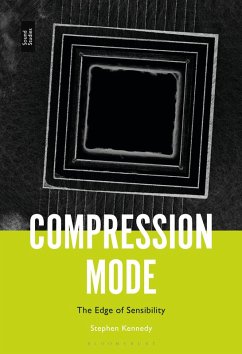
Sonic Identity at the Margins (eBook, PDF)

PAYBACK Punkte
12 °P sammeln!
Sonic Identity at the Margins convenes the interdisciplinary work of 17 academics, composers, and performers to examine sonic identity from the 19th century to the present. Recognizing the myriad aspects of identity formation, the authors in this volume adopt methodological approaches that range from personal accounts and embodied expression to archival research and hermeneutic interpretation. They examine real and imagined spaces-from video games and monument sites to films and depictions of outer space-by focusing on sonic creation, performance, and reception. Drawing broadly from artistic a...
Sonic Identity at the Margins convenes the interdisciplinary work of 17 academics, composers, and performers to examine sonic identity from the 19th century to the present. Recognizing the myriad aspects of identity formation, the authors in this volume adopt methodological approaches that range from personal accounts and embodied expression to archival research and hermeneutic interpretation. They examine real and imagined spaces-from video games and monument sites to films and depictions of outer space-by focusing on sonic creation, performance, and reception. Drawing broadly from artistic and performance disciplines, the authors reimagine the roles played by music and sound in constructing notions of identity in a broad array of musical experiences, from anti-slavery songsters to Indigenous tunes and soundscapes, noise and multimedia to popular music and symphonic works. Exploring relationships between sound and various markers of identity-including race, gender, ability, and nationality-the authors explore challenging, timely topics, including the legacies of slavery, indigeneity, immigration, and colonial expansion. In heeding recent calls to decolonize music studies and confront its hegemonic methods, the authors interrogate privileged perspectives embedded in creating, performing, and listening to sound, as well as the approaches used to analyze these experiences.













